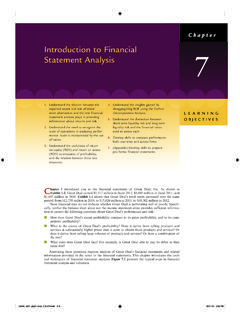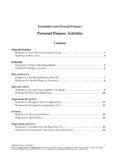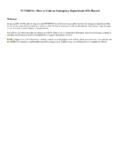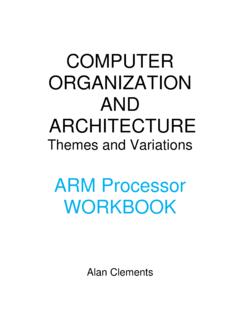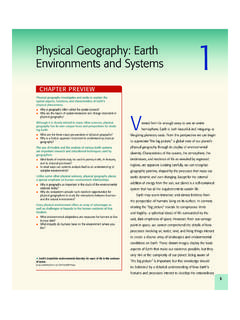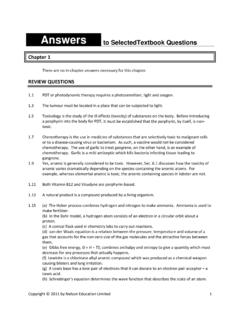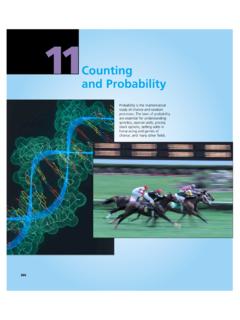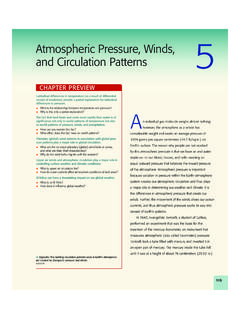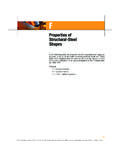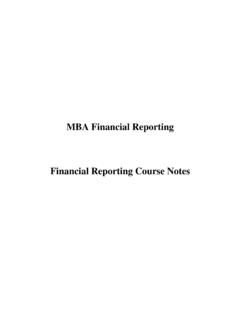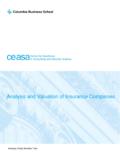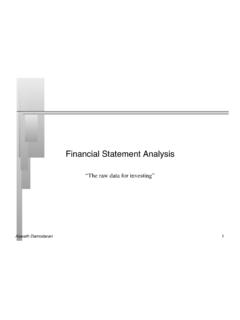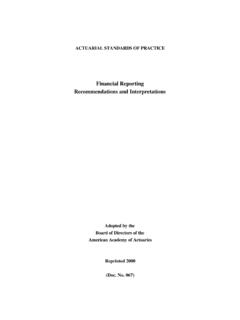Transcription of Solutions to the Exercises - Cengage
1 INTERNATIONAL financial reporting AND analysis , 5TH EDITION ALEXANDER, BRITTON, JORISSEN Student s Solutions to the Exercises Chapter 1 1 Obviously the scope here is almost endless. Here are three interesting definitions from the USA which students are not very likely to come across (extracted from Belkaoui (1992) Accounting Theory, 3rd edn, Academic Press, London). The Committee on Terminology of the American Institute of Certified Public Accounting defined accounting as follows: Accounting is the art of recording, classifying, and summarizing in a significant manner and in terms of money, transactions and events which are, in part at least, of a financial character, and interpreting the results The scope of accounting from this definition appears limited.
2 A broader perspective was offered, by the following definition of accounting as: The process of identifying, measuring, and communicating economic information to permit informed judgements and decisions by users of the More recently, accounting has been defined with reference to the concept of quantitative information: Accounting is a service activity. Its function is to provide quantitative information, primarily financial in nature about economic entities that is intended to be useful in making economic decisions, in making resolved choices among alternative courses of 1 Review and resume , Accounting Terminology Bulletin , American Institute of Certified Public Accounts, New York, 1953, paragraph 5.
3 2 American Accounting Association, A Statement of Basic Accounting Theory, American Accounting Association, Evanston, IL, 1966, 3 financial statements of business enterprises , American Institute of Certified Public Accountants, New York, 1970, paragraph 40. 1 INTERNATIONAL financial reporting AND analysis , 5TH EDITION ALEXANDER, BRITTON, JORISSEN 2 Accounting information is usually mainly past information, but user decisions are by definition future directed. Consider: relevance v. reliability objectivity v. usefulness producer convenience v. user needs. 3 Perhaps it all depends on what reasonably means.
4 The needs of different users are certainly different (illustration required), but greater relevance from multiple reports would need to be set against: (a) costs of preparation (b) danger of confusion and the difficulties of user education. 7 It is really much less objective than people often claim. Examples of unobjectivity include: problem of determining purchase cost overhead allocation depreciation calculation provisions and their estimation prudence (a subjective bias by definition). Chapter 2 1 You will notice that the answer to this question will be influenced to a large extent by the national background of the student.
5 In the Anglo-Saxon world students will more easily argue that accounting is, in essence, economics based. In those countries, accounting standards are rather broad and derived from general principles. These principles are often derived from economic valuation concepts. Students living under a codified law system and in countries with a creditor orientation will argue more often that accounting is law based. If we consider IAS we might argue that IAS is economics based ( substance over form). 2 The answer to this question is strongly influenced by the items put forward in the section national differences will they still play a role in the future?
6 In Chapter 2. As large companies become more global and seek multi-listings, they will be strongly in favour of harmonization and even uniformity. For small local firms the national environment will remain an important factor shaping their financial reporting practices. 2 INTERNATIONAL financial reporting AND analysis , 5TH EDITION ALEXANDER, BRITTON, JORISSEN Chapter 3 1 As so often, this is partly a matter of perception. In theory, the proposition is not correct, for two reasons. The first is that accounting regulation, and accounting practice, in Europe is bound by the contents of European Directives, especially the 4th, for individual companies, and the 7th, for groups.
7 The second is the creation of the endorsement mechanism for emerging IFRSs, described in the text. Practice, however, seems set to be rather different. It should be remembered that the 4th Directive has been amended to allow consistency with IASB requirements in several respects, notably with regard to the use of fair values. The make-up of the IAS Board is also significant. Perhaps most importantly in practice, the entire IAS Board, including the European representatives, seems united on the broad thrust of developments. Chapter 4 2 The two businesses will have different depreciation charges (if they depreciate the buildings at all) and significantly different capital employed totals.
8 They will therefore certainly have different efficiency and return ratios, but are they, economically speaking, different situations? In one sense, yes: more money was put into one than the other; but in another sense, no: opportunity costs and future potential are logically identical. Discuss generally. 3 A tricky one. In one sense, a capital maintenance concept must be defined before income can be determined, suggesting separation is not possible. But since one, in a sense, leads to the other, it could be suggested that perhaps we can define one of them and then automatically deduce the other (which therefore does not need separate definition).
9 Discussion of interrelationships is the key issue. Chapter 5 2 An interesting question. Replacement cost accounting, given rising cost levels, leads to a lower operating profit figure, which is more prudent. It also leads to higher asset figures in the balance sheet, which is less prudent. These two effects considered together will lead to much lower profitability and return on resources ratios, which perhaps sounds more prudent! Make them think! 6 Confused, computer dealer 3 INTERNATIONAL financial reporting AND analysis , 5TH EDITION ALEXANDER, BRITTON, JORISSEN (a) Historical cost accounting Profit and loss accounts for the years.
10 20X1 20X2 Sales 30003600 Cost of sales (2000)(2000) Gross profit 10001600 Expenses - rent (600)(700) Net profit 400900 Tax @ 50% (200)(450) Retained profit 200450 Balance sheets at year ends: 20X1 20X2 Inventory @ 1000 (4)4000(2)2000 @ 1200 (2)`2400(2)2400 @ 1400 (0)0(2)
